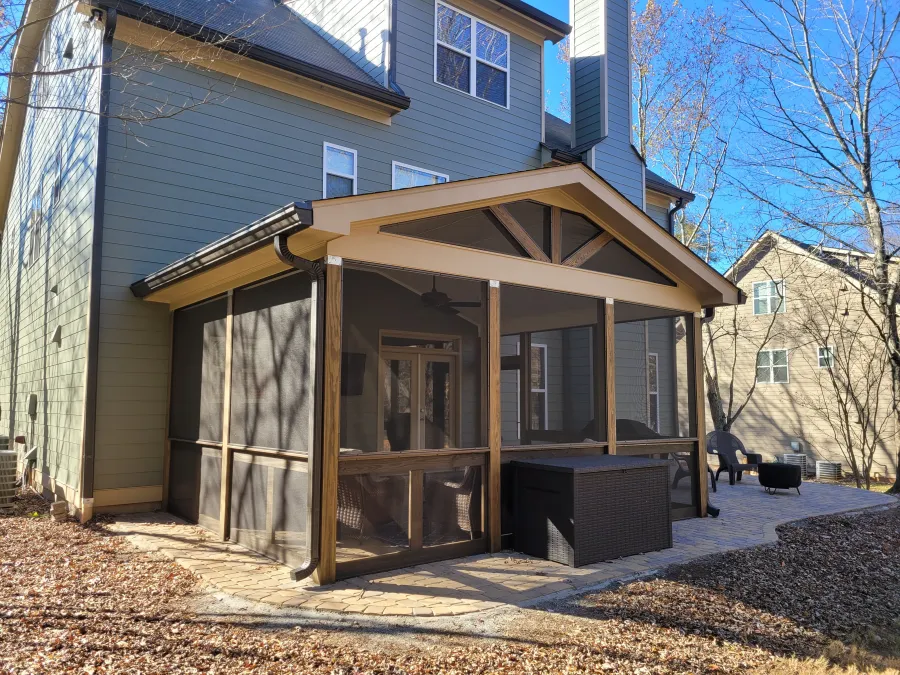Types of Replacement Windows
Homeowners have many options when it comes to replacement windows, so it is important to understand the key differences between the window materials available.

Wood Windows
The Pros & Cons Of Wood Windows
With regard to performance, wooden windows expand and contract with weather and temperature changes, which minimizes leaks. Their insulation value is comparable to most other window materials, and superior to vinyl. And wood is a bio-friendly and renewable material, which makes it an ecologically sound choice for window construction.
Wood windows are a reasonably-priced replacement choice, but will cost a bit more than vinyl replacement windows. From a maintenance perspective, wood windows are more susceptible to moisture damage than other products, and require ongoing maintenance with stain or paint for protection from the elements.
Aluminum Clad Wood Windows
Like wood windows, clad-wood windows are considered to deliver better energy efficiency than vinyl windows because they adjust as temperatures change, remaining airtight.
Cellular PVC Windows
Cellular PVC is a strong, solid material that can be nailed, sawn and fabricated like wood. PVC window are made up of the same architectural components and moldings as traditional wood windows -- brickmould, sill, jamb, and sash rails. Cellular PVC windows are rigid and will not warp like vinyl windows can. They can be painted to match your other home interior and exterior trim colors.
Fiberglass Windows
Fiberglass is also considered an eco-friendly choice for replacement windows. Fiberglass windows remain airtight despite extreme temperatures, and foam-filled fiberglass windows have been rated with the highest insulation value of any window frame material, making them a top pick for energy-efficiency.
Fiberglass windows cost a bit more than other alternatives. In general, expect to pay 30-50% more for fiberglass than for standard wood or vinyl replacement windows. Aluminum clad windows offer many of the advantages of Fiberglass Windows, while also offering attractive real wood interiors and a more affordable price.
Vinyl Windows
There are a few aesthetic limitations of vinyl replacement windows. These windows can fade over time, and they cannot be painted easily. This can present problems should you decide to change your home colors in the future. Because vinyl is not as rigid as other window materials, the frames must be made thicker. This means the glass panes are smaller, decreasing visibility somewhat.
Of all replacement window materials, vinyl will expand and contract more, and it can warp due to the material’s lower structural integrity. This can make them less air-tight than other windows, reducing thermal efficiency. Therefore, caulking and insulation should be checked regularly to make sure drafts don’t develop.